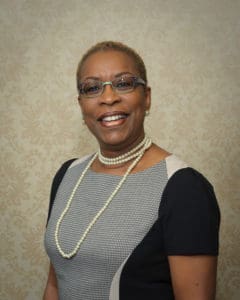Ending a Vicious Cycle; A Deeper Dive Into the Root Causes of Conflict: Dianne Williams
Dianne Williams is a criminologist by trade and has been in academia for about two decades. However, she “became increasingly disenchanted with the criminal justice system and with academia.” She felt that the punitive approach and the often-presented bandaid solutions to crime and criminal behavior create more criminals rather than correcting or preventing delinquent behavior. “The criminal justice system addresses the symptom of a deeper social problem and not the actual problem.” This prompted her to explore non-academic and non-criminology approaches to addressing behavioral issues with more long-term solutions.
Restorative Justice

Dianne obtained her bachelor’s in Accounting with the intention of going to law school to study business law. This path “opened up a whole can of worms” as she started engaging in a law forum that spoke to the legal rights of individuals, especially guilty individuals. This is when she realized that her focus should be shifted from defending criminals after the fact, to preventing them from engaging in crime in the first place. This vision landed her in the classroom where she saw an opportunity to divert youth from a life of crime.
She went on to teach a Restorative Justice class and published a paper based on her findings. She later became credentialed in order to continue teaching the class and got a post-Ph.D., Master of Science in Restorative Practices from the International Institute for Restorative Practices, in Bethlehem Pennsylvania. She also became a mediator and trained her students and community members, especially in marginalized communities, on the beneficits of adopting a reflective approach to conflict. Dianne has taught at North Carolina A&T State University, Walden University, and Livingstone College and High Point University. She also holds an MBA and a Ph.D. in Human Services with a concentration in Criminal Justice.
Coexistence as a Solution to Conflict
Dianne Williams is genuinely interested in working with individuals who are invested in conflict reduction. She is particularly “concerned and disappointed” with how people at the micro and macro levels approach differences and conflict. “We have no tolerance for anyone who is different from us.” This passion led her to South Africa where she trained teachers in restorative practices, who now, in turn, teach it to their students, and to Indonesia, where she sensitized law students on the benefits of adopting a restorative approach to wrongdoing. Even more concerning, she says, is that we “as a human race, are gullible and devolving.” In the sense that, we have made great technological advancements, however, we “still see war as a solution to our differences.” We still let the opinions of a minority manipulate us into seeing violence as the only viable tool to maintain peace and justice.
MBBI
Dianne has been a member of MBBI for about two years now, involved with the United Nations High-Level Political Forum, as well as other international projects. She was introduced to the organization by a member she met in Indonesia.
She believes that transformative mediation is the most effective, especially in the long term. This is because transformative approaches go beyond solving immediate issues and work towards preventing future ones. Restorative approaches also “enhance the transformative impact of mediation.” Addressing historical traumas also helps us dig deeper and come up with more effective solutions. Addressing the why also serves as a reflection point. “I like to ask questions that make people think”, which is a key aspect of mediation. While not discounting the obvious structural obstacles in place for many marginalized groups, Dianne also urges people to move away from a victim mindset. “While we work on the wrongdoers, we also have to work on the victims.”
However, with all the ongoing war and chaos, Dianne Williams is still dedicated to her purpose, stating; “Until this world shows me that it is committed to the bodies on this piece of rock, I will continue to do me.”
Article by Jainaba Gaye, MBBI Writer
